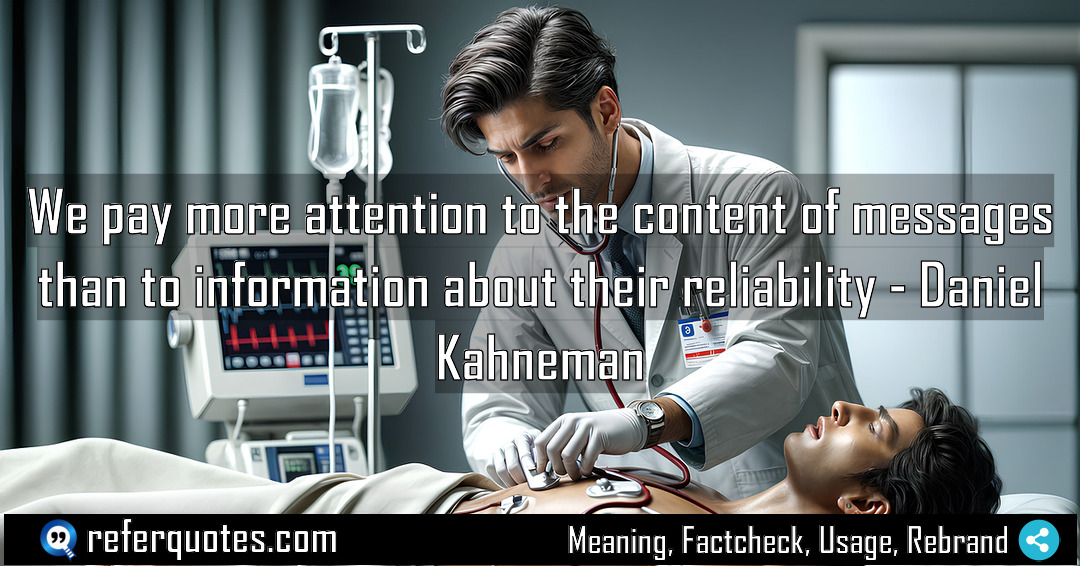We pay more attention to the content of messages… and that’s exactly why we fall for so much misinformation. It’s a mental blind spot Kahneman nailed, and once you see it, you’ll spot it everywhere.
Share Image Quote:Table of Contents
Meaning
Our brains are wired to grab onto the *what* of a message—the story, the claim, the juicy bit—and largely ignore the *who*, *how*, or *why* behind it. We prioritize narrative over credibility, every single time.
Explanation
Let me break this down. Your brain has two systems, right? System 1 is fast, intuitive, and lazy. It loves a good story. System 2 is slow, analytical, and effortful. It’s the one that’s supposed to check sources. But here’s the kicker: System 1 runs the show most of the time. So when a compelling message comes in—whether it’s a headline, a sales pitch, or office gossip—your brain latches onto the content. The emotional core. The thing that *feels* true. The metadata about its reliability? That takes work. It requires you to pause, to question, to exert mental energy. And our default is to skip that step. We’re cognitive misers. We accept information at face value because it’s the path of least resistance. It’s why a well-told lie can be more powerful than a poorly presented truth.
Quote Summary
| Context | Attributes |
|---|---|
| Original Language | English (3668) |
| Category | Education (260) |
| Topics | attention (57), bias (25), information (5) |
| Literary Style | analytical (121) |
| Emotion / Mood | calm (491) |
| Overall Quote Score | 78 (178) |
Origin & Factcheck
This insight comes straight from Daniel Kahneman’s 2011 magnum opus, “Thinking, Fast and Slow,” which synthesized decades of his research with Amos Tversky. It originated from their work in behavioral economics and psychology, primarily in the US and Israel. You sometimes see similar sentiments floating around, but this specific, elegant phrasing is uniquely Kahneman’s.
Attribution Summary
| Context | Attributes |
|---|---|
| Author | Daniel Kahneman (54) |
| Source Type | Book (4032) |
| Source/Book Name | Thinking, Fast and Slow (54) |
| Origin Timeperiod | 21st Century (1892) |
| Original Language | English (3668) |
| Authenticity | Verified (4032) |
Author Bio
Dr Daniel Kahneman transformed how we think about thinking. Trained in Israel and at UC Berkeley, he built a career spanning Hebrew University, UBC, UC Berkeley, and Princeton. His partnership with Amos Tversky produced prospect theory and the heuristics-and-biases program, culminating in the Nobel Prize in Economic Sciences. He engaged broad audiences through bestselling books and practical frameworks for better decisions. He continued writing and advising late into life, leaving ideas that shape economics, policy, medicine, and management. If you want to dive deeper, start with the Dr Daniel Kahneman book list and explore his enduring insights.
| Official Website
Where is this quotation located?
| Quotation | We pay more attention to the content of messages than to information about their reliability |
| Book Details | Publication Year: 2011; ISBN: 9780374275631; Latest Edition: Farrar, Straus and Giroux, 2013; Number of pages: 499. |
| Where is it? | Part II: Heuristics and Biases, Chapter 13: Availability, Approximate page 224 (2013 edition) |
